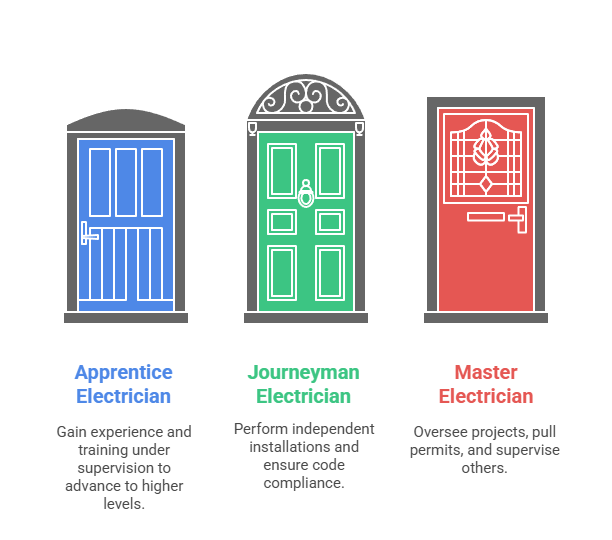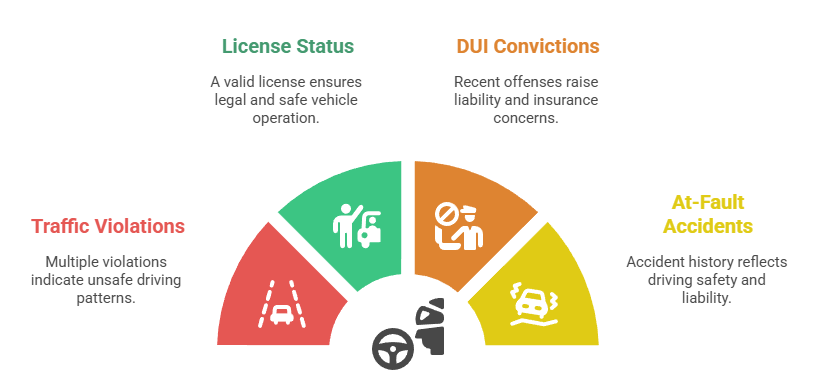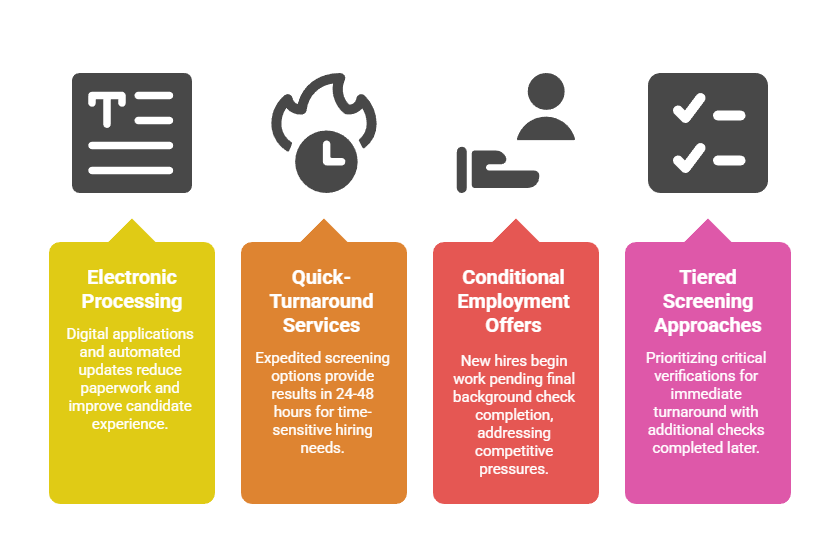Texas solar contractors must navigate a complex regulatory framework involving TDLR licensing requirements, electrical safety standards, and comprehensive employee screening protocols as the state's solar industry experiences unprecedented growth. A proper Texas solar contractor background check encompasses criminal history verification, license validation, motor vehicle records review, and employment history confirmation to satisfy insurance underwriters, protect customer property access privileges, and maintain compliance with state electrical contractor regulations while addressing the industry's critical skilled labor shortage. Employers should consult qualified legal counsel to ensure background screening programs comply with current federal, state, and local laws applicable to their specific circumstances.
Key Takeaways
- Texas solar installers must verify TDLR electrician licenses and complete criminal background checks to comply with state electrical contractor regulations and maintain liability insurance coverage.
- FCRA-compliant background checks require standalone disclosure documents, written authorization, and a two-step adverse action process including providing applicants a copy of the consumer report and Summary of Rights before final employment decisions.
- Texas has no statewide ban-the-box law for private employers, though EEOC guidance requires individualized assessments of criminal records considering offense nature, time elapsed, rehabilitation evidence, and specific job relevance rather than blanket disqualification policies.
- Criminal history reporting varies by position and salary level—while FCRA generally limits non-conviction records to seven years, felony convictions may be reported indefinitely, particularly for positions with salaries exceeding $75,000 annually.
- TDLR licensing requirements apply to solar installation work involving electrical grid connections or service panel modifications, though specific exemptions exist for certain low-voltage and mechanical mounting work.
- Continuous monitoring programs tracking license status changes, criminal charges, or driving violations require initial and ongoing employee consent under FCRA, with clear disclosure of monitoring practices in authorization documents.
- Insurance carriers may offer premium reductions ranging from 5-25% for solar contractors with documented screening programs, though discounts vary significantly by carrier, policy type, and individual risk factors.
- Subcontractor screening remains critical for prime contractors, as contractual relationships and degree of control exercised affect potential liability exposure, requiring consultation with legal counsel about independent contractor classification.
Understanding Texas Solar Contractor Background Check Requirements
The Texas solar installation industry operates at the intersection of electrical contracting regulations, renewable energy incentives, and residential property access. This creates a unique compliance landscape for employment screening. As the state continues expanding solar capacity, installation companies face increasing scrutiny from insurance carriers, homeowners, and regulatory agencies regarding workforce qualifications and screening standards.
TDLR Licensing Framework for Solar Installation Work
The Texas Department of Licensing and Regulation (TDLR) oversees electrical contractor licensing requirements that directly impact solar installation companies. Generally, solar work involving electrical connections to the grid or service panel modifications requires TDLR-licensed electrical contractors to perform or directly supervise the installation. However, specific exemptions exist for certain low-voltage and mechanical mounting work. Companies should consult TDLR regulations and legal counsel for position-specific licensing requirements.
TDLR distinguishes between three primary electrician categories. Each category has different qualification levels and supervision requirements:

- Apprentice Electricians: Work under direct supervision of journeyman or master electricians while completing required training hours and coursework for advancement to higher license levels.
- Journeyman Electricians: Qualified for independent installation work after completing apprenticeship requirements, passing state examinations, and demonstrating competency in electrical code compliance and safety standards.
- Master Electricians: Authorized to pull permits, oversee projects, and supervise other electricians after meeting the highest qualification standards including additional experience requirements and advanced examinations.
Solar companies must verify that field personnel hold current, active TDLR licenses appropriate to their job responsibilities. License verification represents a fundamental component of the Texas solar contractor background check process.
Criminal History Requirements for Solar Industry Employment
Texas solar contractors typically implement criminal background screening that extends seven to ten years, though the scope depends on position salary levels and applicable FCRA provisions. Under FCRA Section 605(a)(5), the seven-year reporting limitation on arrests, pending charges, and certain civil judgments does not apply when the candidate's annual salary reasonably exceeds $75,000. This exception also doesn't apply to felony convictions, which may be reported indefinitely. Many solar installation supervisory and specialized technical positions exceed this threshold.
The Fair Credit Reporting Act governs how solar companies obtain, evaluate, and act upon criminal history information during hiring processes. Texas solar employers must provide applicants with standalone disclosure documents separate from employment applications. They must obtain written consent before conducting checks. Additionally, they must follow specific adverse action procedures if criminal history leads to employment decisions.
Federal EEOC guidance from 2012 on the Consideration of Arrest and Conviction Records requires individualized assessments rather than blanket disqualification policies. This approach examines the nature and gravity of offenses, time elapsed since conviction, and the relationship between criminal history and specific job responsibilities. This individualized assessment proves particularly important given the solar industry's workforce shortage and second-chance employment opportunities.
Insurance Carrier Mandates Driving Screening Standards
Commercial general liability and worker's compensation insurance carriers impose specific background screening requirements on Texas solar installation companies as policy conditions. Insurance underwriters recognize that thorough employee vetting correlates with reduced claim frequency and severity. Common screening requirements include:
| Insurance Requirement | Typical Standard |
| Criminal history review | 7-10 year lookback period |
| License verification | Current, active TDLR credentials |
| Motor vehicle records | Clean driving history for vehicle operators |
| Documentation standards | Written screening policies and record retention |
| Disqualification criteria | Review standards for specific offense categories |
Solar contractors who fail to meet insurer-mandated screening standards risk policy exclusions, coverage denials, or premium increases. The insurance relationship creates contractual obligations beyond regulatory compliance. Companies should review insurance policies annually with brokers to ensure screening procedures align with carrier expectations.
Essential Components of Solar Installer Background Screening
Comprehensive background screening for Texas solar contractors involves multiple verification layers designed to assess technical qualifications, safety considerations, and trustworthiness factors. The solar installation environment presents unique risk profiles combining electrical hazards, fall protection concerns, property access responsibilities, and expensive equipment operation. All of these require careful personnel evaluation within legal compliance frameworks.
Criminal Record Search Methodologies
County-level criminal record searches form the foundation of thorough Texas solar contractor background checks. Most criminal prosecutions occur at the county level rather than through federal courts. Texas's 254 counties maintain separate court systems with varying record-keeping practices. Employment screening firms typically search counties where applicants have lived, worked, or attended school over the previous seven to ten years.
Federal criminal record searches complement county searches by identifying offenses prosecuted in federal courts. These include interstate theft operations, federal drug trafficking, immigration violations, and crimes on federal property. Sex offender registry searches across Texas and neighboring states provide additional safety verification, particularly important for residential installation crews.
Motor Vehicle Record Reviews for Field Personnel
Driving record checks represent critical screening components for solar installation positions requiring company vehicle operation, equipment transportation, or customer site travel. Texas Department of Public Safety (DPS) motor vehicle records reveal important safety indicators:

- Traffic Violations: Multiple moving violations indicate a pattern of unsafe driving behavior and increased accident risk for company vehicle operations and equipment transportation responsibilities.
- License Status: Current, valid license with no suspensions or restrictions ensures legal operation of company vehicles and compliance with insurance policy requirements.
- DUI Convictions: Recent impaired driving offenses present significant liability concerns and typically trigger insurance coverage complications requiring careful evaluation.
- At-Fault Accidents: Accident history demonstrates driving safety consciousness and helps predict future liability exposure for company fleet operations.
Solar companies typically establish driving record standards considering multiple serious violations, suspended licenses, or recent DUI offenses. However, they must maintain individualized assessment principles that evaluate the offense relationship to specific job requirements.
Employment History and Reference Verification
Previous employment verification confirms work history accuracy and identifies undisclosed terminations. It also provides performance insights from former supervisors in the solar or electrical contracting sectors. Reference checks allow solar companies to assess technical competencies, safety compliance, customer service capabilities, and teamwork qualities that predict installation crew success.
Texas solar contractors should verify the most recent 3-5 years of employment history. They should contact former employers directly rather than relying solely on applicant-provided references. The employment verification process often reveals patterns that criminal records alone might not capture.
Implementing FCRA-Compliant Screening Programs
The Fair Credit Reporting Act establishes federal requirements for employment background checks conducted through third-party screening companies. This creates compliance obligations that Texas solar contractors must satisfy. FCRA violations can result in regulatory penalties, civil lawsuits, and damage awards that significantly impact business operations. Making procedural compliance essential for solar industry employers navigating complex hiring processes.
Disclosure, Authorization, and Complete Adverse Action Procedures
FCRA-compliant Texas solar contractor background checks begin with standalone disclosure documents informing applicants that background screening will occur. The disclosure must appear on a separate document without extraneous information. Solar companies must obtain written authorization from applicants before initiating background checks, with authorization forms meeting specific FCRA content and formatting requirements.
When background check results lead to adverse employment decisions, employers must follow the FCRA's complete two-step adverse action process:
Pre-Adverse Action Requirements:
- Provide applicant with complete copy of the consumer report
- Include "A Summary of Your Rights Under the Fair Credit Reporting Act" (available from the FTC)
- Allow reasonable time—typically at least five business days—for applicant to review results and dispute inaccuracies
Final Adverse Action Requirements:
- Issue final adverse action notice after waiting period expires
- Include specific reasons for the employment decision
- Provide screening agency contact information
- Inform applicant of rights to dispute report accuracy with the consumer reporting agency
This comprehensive two-step process protects applicant rights while allowing employers to make informed hiring decisions. Consultation with employment counsel ensures proper implementation.
Individualized Assessment Requirements and Fair Chance Hiring
While Texas has no statewide ban-the-box law for private employers (such laws apply only to Texas state government hiring and certain municipalities like Austin and San Antonio), federal EEOC guidance requires individualized criminal history assessments. The individualized assessment approach examines the nature and gravity of offenses, time elapsed since conviction or completion of sentence, rehabilitation evidence, and the relationship between criminal history and specific job responsibilities.
| Assessment Factor | Evaluation Criteria | Application to Solar Installation |
| Nature of offense | Type and severity of criminal conduct | Theft offenses relevant to property access; violent crimes relevant to customer safety |
| Time elapsed | Years since conviction or sentence completion | Recent offenses carry more weight than older, isolated incidents |
| Rehabilitation evidence | Employment history, training, references | Demonstrates reformed behavior and stability |
| Job relationship | Connection between offense and position duties | Direct relevance to essential job functions |
Automatic disqualification policies based solely on offense categories violate EEOC guidance and create discrimination liability under Title VII of the Civil Rights Act of 1964. Solar companies should establish written evaluation criteria considering offense recency, severity, rehabilitation indicators, and essential job functions.
Record Retention and Data Security Requirements
Texas solar contractors must implement secure record-keeping systems for background check documentation. These systems protect sensitive applicant information from unauthorized access or data breaches. FCRA requirements, state privacy laws, and industry best practices support document retention policies that balance legal preservation needs with privacy protection principles.
Data security measures should include encrypted digital storage, secure physical document storage, and proper disposal procedures when retention periods expire. Solar companies experiencing data breaches involving background check information face notification obligations, regulatory scrutiny, and potential liability for privacy violations. The increasing digitization of HR processes requires robust cybersecurity measures protecting applicant and employee information throughout the employment lifecycle.
Continuous Monitoring and Post-Hire Screening Strategies
Background screening for Texas solar contractors shouldn't end after initial hiring decisions. Ongoing monitoring programs provide real-time awareness of employee license status changes, criminal charges, or driving violations affecting job performance or compliance. However, continuous monitoring programs require initial and ongoing employee consent under FCRA. Employers must clearly disclose monitoring practices in standalone authorization documents and maintain proper consent documentation throughout the monitoring period.
Real-Time License and Credential Monitoring with Proper Authorization
TDLR electrician licenses require periodic renewal and continuing education compliance. License status can potentially change due to expiration, disciplinary actions, or regulatory violations. Continuous monitoring services track license status changes and alert employers when electrician credentials expire, undergo suspension, or face disciplinary proceedings. However, this can only occur after obtaining proper employee consent for ongoing monitoring activities.
Automated monitoring systems check license databases regularly. They compare employee license numbers against current TDLR records and flag any status changes for HR review. This systematic approach eliminates reliance on employees self-reporting license issues and ensures consistent verification across the entire workforce. Proper consent protocols must be maintained.
Criminal Record and Driving History Updates
Ongoing criminal record monitoring alerts employers to new arrests, charges, or convictions affecting existing employees between scheduled background check renewals. This requires separate employee consent beyond initial pre-employment authorization in many jurisdictions. The notification allows solar contractors to assess whether new criminal activity creates safety concerns, property access issues, or insurance coverage complications. These require individualized evaluation of the offense relationship to job responsibilities.
Motor vehicle record monitoring tracks new traffic violations, license suspensions, or at-fault accidents for employees with driving responsibilities. Texas solar installers operating company vehicles or driving between job sites represent significant liability exposures. Ongoing MVR monitoring helps manage these risks with appropriate consent frameworks. Real-time notification of serious driving violations, DUI charges, or license suspensions allows immediate response before insurance coverage issues arise.
Industry-Specific Background Check Challenges in Solar Installation
The Texas solar sector presents unique screening challenges related to rapid industry growth, skilled labor shortages, workforce demographics, and evolving job role requirements. Solar contractors must balance thorough due diligence with competitive hiring timelines and workforce availability constraints. All while maintaining legal compliance with federal and state employment regulations.
Skilled Labor Shortage and Hiring Timeline Pressures
The solar installation industry's explosive growth has created unprecedented demand for qualified electricians, roofers, and specialized solar technicians. Job openings significantly exceed available qualified candidates. The competitive labor market pressures solar companies to streamline hiring processes. This includes background screening timelines that candidates view as burdensome or lengthy.
Efficient screening programs address these challenges through several strategies:

- Electronic Processing Systems: Digital applications, online consent forms, and automated status updates reduce paperwork delays and improve candidate experience during the screening process.
- Quick-Turnaround Services: Expedited screening options provide results in 24-48 hours for time-sensitive hiring needs while maintaining comprehensive verification standards.
- Conditional Employment Offers: Allowing new hires to begin work pending final background check completion addresses competitive pressures while ensuring minimum safety standards are met.
- Tiered Screening Approaches: Prioritizing critical verifications for immediate turnaround with additional checks completed after employment begins under conditional arrangements.
The conditional employment model clearly communicates to candidates that continued employment depends on satisfactory completion of all background check components. This balances speed with thoroughness in the screening process.
Subcontractor Screening and Liability Management
Many Texas solar installation companies utilize subcontractors for specialized work, peak demand periods, or geographic expansion. This creates screening responsibility questions for workforce qualification and compliance. While the extent of prime contractor liability for subcontractor actions depends on contractual relationships, degree of control exercised over work performance, and specific fact patterns under Texas law, comprehensive subcontractor agreements should specify background check requirements.
Prime contractors should verify subcontractor licensing, insurance coverage, and compliance with contractual screening requirements. Periodic auditing of subcontractor screening documentation helps manage compliance risks. Companies should consult legal counsel about contractor versus employee classification issues and potential vicarious liability exposure in their specific operational context.
Cost-Benefit Analysis of Comprehensive Screening Programs

Investing in thorough Texas solar contractor background checks involves direct costs including screening fees, staff time, and potential hiring delays. However, it generates substantial returns through reduced liability exposure, lower insurance premiums, decreased turnover, and enhanced reputation. Solar companies should evaluate screening programs as strategic investments rather than merely compliance expenses.
Direct Costs and Implementation Considerations
Background screening costs for Texas solar contractors typically range from $50-$150 per candidate depending on check comprehensiveness, turnaround requirements, and volume discounts. A standard package including county criminal searches, federal criminal records, sex offender registries, and motor vehicle records falls in the $75-$100 range. License verification, employment history checks, and additional search jurisdictions increase costs but provide more comprehensive candidate assessment.
| Screening Component | Typical Cost Range | Turnaround Time |
| County criminal search (per jurisdiction) | $15-$30 | 2-4 business days |
| Federal criminal records | $20-$35 | 1-3 business days |
| Motor vehicle records | $10-$25 | 1-2 business days |
| Employment verification | $25-$50 per employer | 3-7 business days |
| Professional license verification | $10-$20 | 1-2 business days |
Implementation costs extend beyond per-check fees to include policy development, staff training, technology integration, and ongoing program management. The upfront investment in proper program implementation prevents costly compliance violations and discrimination claims.
Return on Investment Through Risk Reduction
Insurance premium adjustments represent quantifiable benefits of comprehensive screening programs. Some carriers offer reductions ranging from 5-25% for solar contractors demonstrating systematic background check processes. However, specific discount levels vary significantly by carrier, policy type, coverage limits, and individual company risk profiles. Companies should consult insurance brokers about available discounts in their specific circumstances.
Additional financial benefits include reduced worker's compensation claims, fewer customer property damage incidents, decreased theft allegations, and lower legal defense costs. Reputation protection in the competitive Texas solar market provides significant value from comprehensive background check programs that companies can communicate to customers. Residential solar customers increasingly research contractor qualifications before making purchase decisions.
Conclusion
Texas solar contractor background check programs must balance comprehensive risk assessment with practical hiring realities in an industry experiencing rapid growth and persistent workforce shortages. All while maintaining strict compliance with FCRA requirements and federal anti-discrimination guidance. The most effective screening approaches combine TDLR license verification, multi-jurisdictional criminal history searches with appropriate FCRA lookback considerations, motor vehicle record reviews, and employment verification. They must follow complete adverse action procedures and individualized assessment principles. As the Texas solar market continues expanding, installation companies that implement legally compliant, strategic background screening programs will protect customers, reduce liability exposure, satisfy insurance requirements, and build competitive advantages through workforce quality. Employment laws and regulations change frequently. Companies should consult qualified legal counsel and professional screening providers to ensure ongoing compliance with applicable federal, state, and local requirements.
Frequently Asked Questions
What background check components are legally required for Texas solar installers?
Texas law doesn't mandate specific background check components for solar contractors, but TDLR electrician license verification is required for personnel performing electrical work involving grid connections or service panel modifications. Insurance carriers typically contractually require criminal history checks and motor vehicle record reviews for drivers. Specific requirements depend on insurance policies, municipal contractor registration rules, and whether you work on government or utility projects. Companies should consult legal counsel about applicable requirements.
How long does a typical solar contractor background check take in Texas?
Most Texas solar contractor background checks are completed within 3-5 business days for standard packages including county criminal searches, federal records, and motor vehicle reports. Turnaround times vary based on county court responsiveness, the number of jurisdictions searched, and whether employment verification is included. Expedited services can deliver results in 24-48 hours for additional fees, though some county courts don't offer rush processing.
Can solar companies in Texas refuse to hire someone with a criminal record?
Texas solar contractors can consider criminal history in hiring decisions but federal EEOC guidance requires individualized assessments examining offense nature and gravity, time elapsed since conviction, evidence of rehabilitation, and the relationship between criminal history and specific job responsibilities. Blanket policies automatically disqualifying all applicants with criminal records violate EEOC guidance and create Title VII discrimination liability. FCRA requires complete adverse action procedures if background check results lead to employment denials.
What are the FCRA adverse action requirements for background checks?
When background check results lead to adverse employment decisions, employers must provide pre-adverse action notice including a copy of the consumer report, "A Summary of Your Rights Under the Fair Credit Reporting Act," and at least five business days for the applicant to dispute inaccuracies. After the waiting period, employers issue final adverse action notices with specific reasons for the decision, screening agency contact information, and dispute rights.
How much does a comprehensive background check cost for Texas solar contractors?
Background screening for solar installers typically costs $75-$150 per candidate depending on check comprehensiveness, turnaround speed, and screening company pricing. Basic packages with county criminal searches and sex offender registries start around $50, while comprehensive checks adding federal records, multi-state searches, employment verification, and motor vehicle records reach $150 or more. Volume pricing reduces per-check costs for companies with regular hiring needs.
Do continuous monitoring programs require employee consent?
Yes, continuous monitoring programs tracking license status changes, criminal charges, or driving violations require initial and ongoing employee consent under FCRA. Employers must clearly disclose monitoring practices in standalone documents separate from other employment materials and obtain written authorization. Companies should consult legal counsel about specific consent requirements and maintain proper documentation throughout the monitoring period.
Does Texas have ban-the-box laws for solar contractors?
Texas has no statewide ban-the-box law for private employers—such restrictions apply only to Texas state government hiring and certain municipalities including Austin and San Antonio. Most private solar contractors are not subject to ban-the-box requirements but should follow federal EEOC guidance requiring individualized criminal history assessments rather than blanket disqualification policies.
What's the difference between the 7-year rule and conviction reporting?
Under FCRA Section 605(a)(5), the seven-year reporting limitation applies to arrests, pending charges, and certain civil judgments but contains major exceptions. The limitation does not apply to felony convictions, which may be reported indefinitely, or when the candidate's annual salary reasonably exceeds $75,000. Many solar installation supervisory and technical positions exceed this threshold, allowing more comprehensive historical review.
Additional Resources
- Texas Department of Licensing and Regulation - Electrician Licensing Information
https://www.tdlr.texas.gov/electricians/electricians.htm - Federal Trade Commission - Using Consumer Reports: What Employers Need to Know
https://www.ftc.gov/business-guidance/resources/using-consumer-reports-what-employers-need-know - EEOC Enforcement Guidance on Consideration of Arrest and Conviction Records (2012)
https://www.eeoc.gov/laws/guidance/consideration-arrest-and-conviction-records-employment-decisions-under-title-vii - FTC Summary of Rights Under the Fair Credit Reporting Act
https://www.ftc.gov/legal-library/browse/fair-credit-reporting-act - Professional Background Screening Association - Background Screening Credentialing Council
https://www.pbsa.org/standards-best-practices
Still have questions?
Get in touch with our team today for a personalized demo and discover how our tailored volume pricing and packages can drive results for your business!
How useful was this page?*
Note: your comments are anonymous. We use them to improve the website. Do not include any personal details.
Visit our FCRA Compliance Tool or leave a message here if you need a response.
From the blog Explore the GCheck Content Hub

What Shows Up on a Home Health Aide Background Check: A Complete Compliance Guide for Employers and Job Seekers
4 Dec, 2025 • 18 min read
Hospital Volunteer Background Check: Complete Compliance Guide for Healthcare Facilities
4 Dec, 2025 • 20 min read
Florida MVR Check: Complete Guide to Driving Record Screening for Employers
4 Dec, 2025 • 16 min readThe information provided in this article is for general informational and educational purposes only and should not be construed as legal advice or a substitute for consultation with qualified legal counsel. While we strive to ensure accuracy, employment screening laws and regulations—including but not limited to the Fair Credit Reporting Act (FCRA), Equal Employment Opportunity Commission (EEOC) guidelines, state and local ban-the-box laws, industry-specific requirements, and other applicable federal, state, and local statutes—are subject to frequent changes, varying interpretations, and jurisdiction-specific applications that may affect their implementation in your organization. Employers and screening decision-makers are solely responsible for ensuring their background check policies, procedures, and practices comply with all applicable laws and regulations relevant to their specific industry, location, and circumstances. We strongly recommend consulting with qualified employment law attorneys and compliance professionals before making hiring, tenant screening, or other decisions based on background check information.

